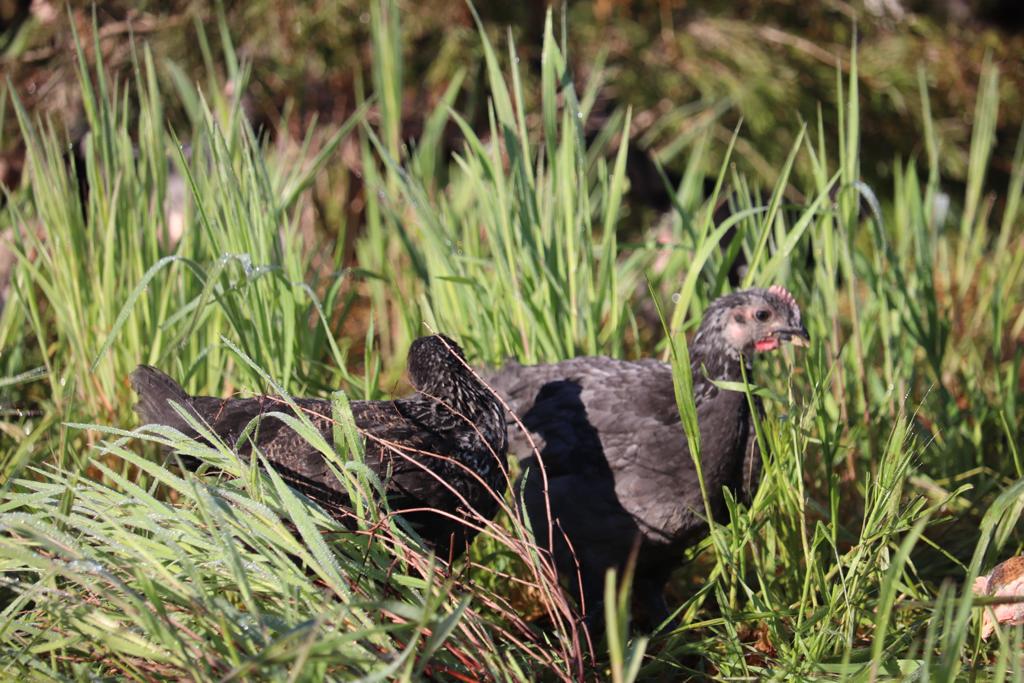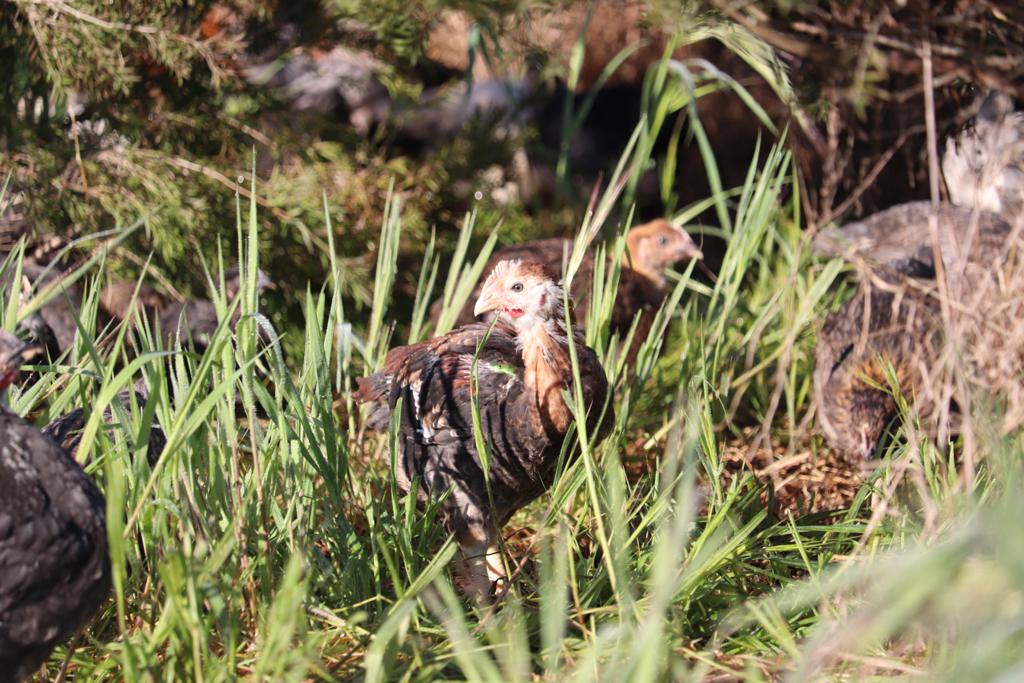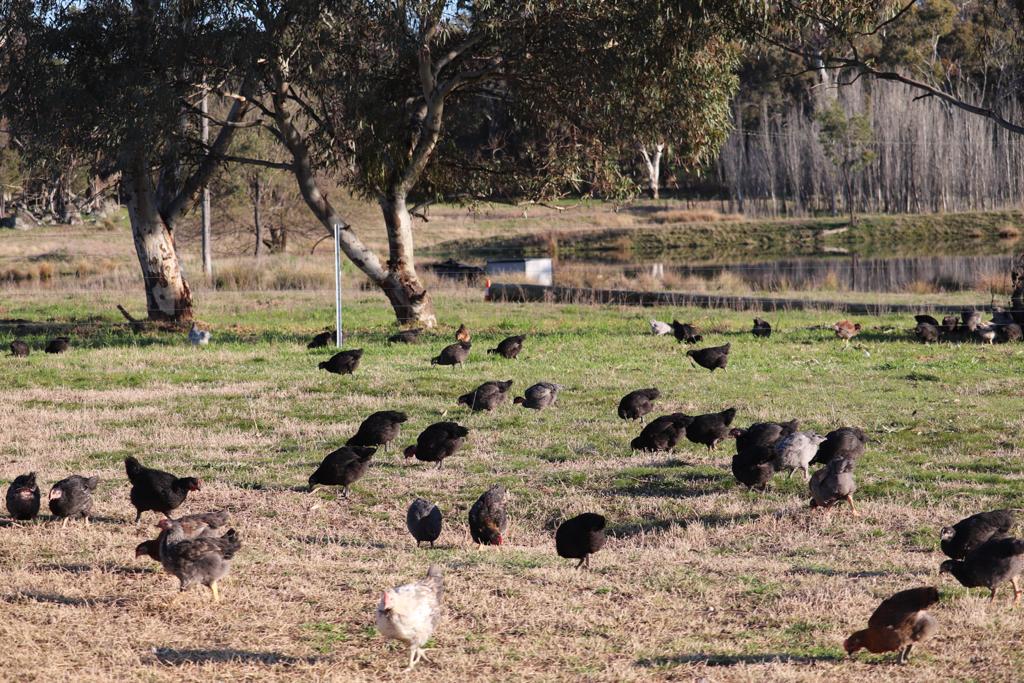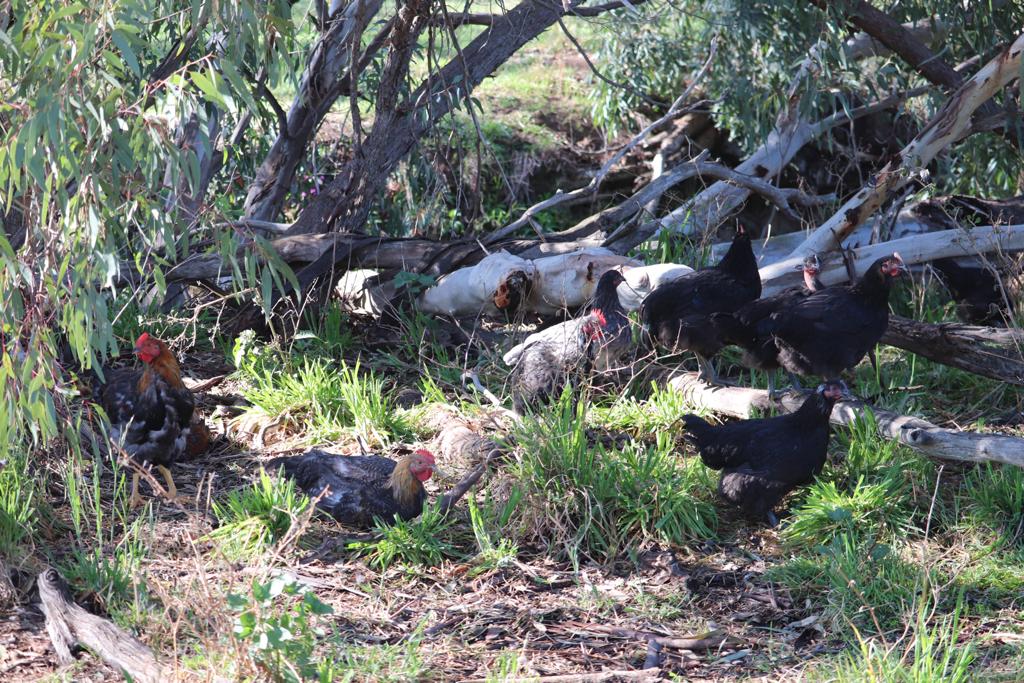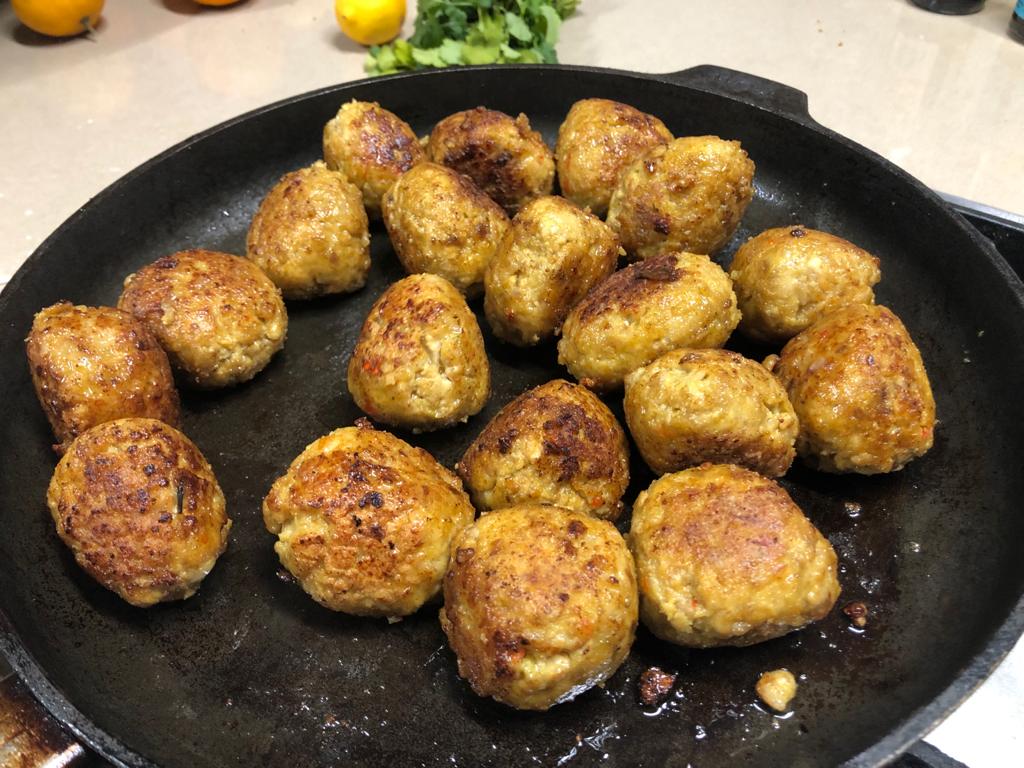SPRING 2021
Hello All!
Can you believe its Spring already! Which means it’s time for another newsletter. With each letter we aim to give you and update on how Grassland Poultry is going, and we also aim to provide more information about how our business works and what makes it different from others. In the past we have spoken about topics such as our custom-built shelters, regenerative farming practices, on-farm breeding program and our purpose-built processing facility. So, when looking around for inspiration this spring, we had to look no further than our beautiful spring pastures. We are incredibly grateful for the spectacular seasons we have had lately, which combined with our regenerative farming practices has provided us another great season of grasses. So, we thought it would be worth discussing these pastures and what pasture raised means to us or in our case raised on open wood lands.
There is a lot of different messaging and terms thrown about when discussing chicken farming, and we find that it can be confusing for the consumer to work out what actual sits well with their individual standards. So, what does free range and pasture raised really mean?
For instance, RSPCA Free-Range Chicken guidelines stipulate that the bird must have access to an outdoor area for at least six hours a day and must have at least 2 square feet of outdoor space. This outdoor space does not need to have any living vegetation for them to explore/eat. They also have guidelines for how the birds are treated when they are locked inside for example density rates, lighting, ventilation etc.
So how does that differ from what we do, how is pasture raised different from free range? Our birds are raised on open grassy box gum woodlands and we are accredited by PROOF (Pasture Raised On Open Fields). Once our birds are old enough to have their adult feathers and therefor can regulate their own body temperatures, they are allowed to roam free 24/7. They do have shelters that are available to them if they choose to use them. However, we find they only really choose to use them if the weather is bad, to get out of the rain or the wind. The key difference is they are not required to be locked in at night, which is why we have our maremma dogs to protect them from predators. The benefit of this is that it allows for them to follow their natural body clock and forage when it feels right to them, not just when they are let out. The woodland areas they live in, are large paddocks filled with plenty grasses, trees and bugs for them to forage, graze and explore. They are provided with grain to supplement their diet, however unlike other companies this is also stored outside of their shelters so they remain encouraged to stay out and about. Our shelters are designed to be moved easily, so we can regularly move the chickens to new paddocks providing fresh grasslands just like we do with our sheep and cattle, giving our soils time to rest and regenerate. Each paddock is roughly around 5 hectares (50,000 meters squared), so there is well and truly enough space for all of our birds and then some, as well as plenty of space for our dogs to run around.
PROOF’s Core Values Are:
- All poultry are able to range in open fields or paddocks
- All poultry are kept at stocking densities that will ensure access to forage and grazing
- All poultry are able to interact with their flock and to carry out natural behaviours
- Poultry will not be kept in cages
- Densely confirmed production systems and feed lotting are not permitted
- All poultry will be protected from predation
- All poultry will be fed to meet their nutritional needs as well as production requirements
- All poultry will be inspected daily.
And we well and truly fit into this standard and do right by our birds.
It is worth pointing out there are farms that use the term ‘pasture raised’ who follow very different standards/protocols to us. A lot of farms that use the term pasture raised often grow their birds in chicken tractors, which are bottomless pens on wheels. These pens get moved daily which is good for the soil as they provide manure and do not remain in one area too long. However, they are not good for the bird, the birds are still confined to a small space, and the grass they are supposedly grazing on is quickly covered in manure. This style of farming is not accredited by PROOF because the birds are kept in cages (pens) and are not able to freely forage/carry out natural behaviours. So, a good rule of thumb when purchasing chicken is to look out for PROOF’s tick of approval and to make sure you have done your research.
We have always valued the importance of being completely transparent with our customers as we wholeheartedly believe it is important to know where your produce comes from. One of our favourite quotes is from Laura Dalrymple and Grant Hilliard’s book The Ethical Omnivore “Every time we buy something, we vote for the system that produced that product, if you don’t understand the system you’ve got no idea what you are supporting” So thank you to everyone that has chosen to support our system.
Our new recipe this season, is another family favourite Bryan’s chicken meatballs! Click on the link to check them out.
https://grasslandpoultry.com.au/bryans-grassland-poultry-chicken-meatballs/
With Gratitude,
Kim and Bryan Kiss, Grassland Poultry

